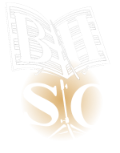The opera, or as Wagner liked to call it the ‘music drama’, was written between 1862 and 1867, but it is clear that Wagner had crystallized the themes well before it was completed. The overture, which contains the main themes, was finished long before the opera and was played several times by itself in concerts.
Wagner uses short, significant themes in his operas to represent persons or ideas. These are often referred to as ‘leitmotifs’. He uses many of them in ‘The Mastersingers’, often combined with longer themes such as Walther’s ‘Prize Song’.
The overture opens with a magnificent statement of the ‘Mastersingers’ main theme – this is heard in different guises throughout the piece. A second theme known as the ‘Lyric Motive’ is heard next. This leads into two march tunes (one of which Wagner based on one found in a book published in Nuremberg in 1697). A theme known as the ‘Longing Motive’ leads on to the other main theme in the work: the ‘Prize Song’. After a succession of other motives the ‘Prize Song’, ‘Mastersingers Theme’ and one of the ‘March’ themes combine, and build to a tremendous finale in which all the vast orchestration is exploited. Die Meistersinger was Wagner’s penultimate music drama, and his only excursion into the realms of comedy.

